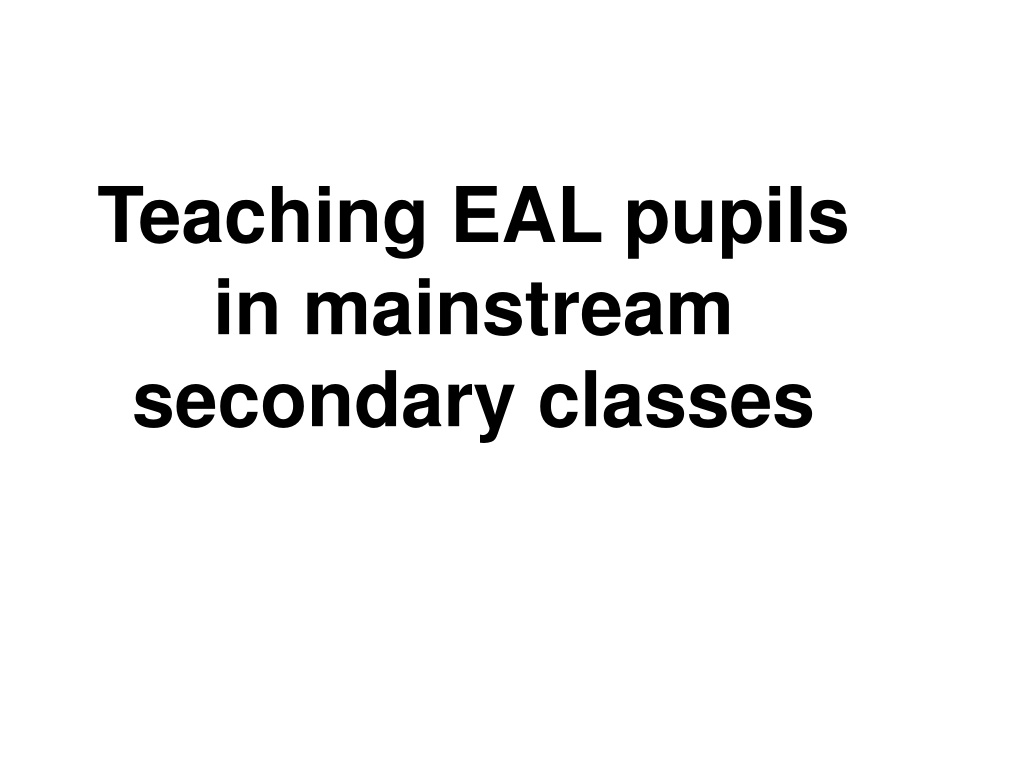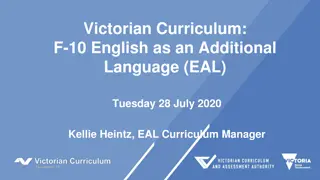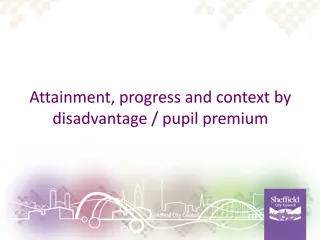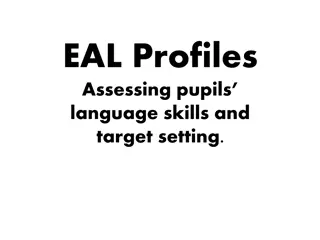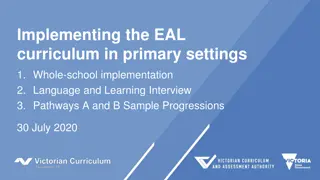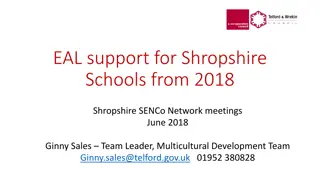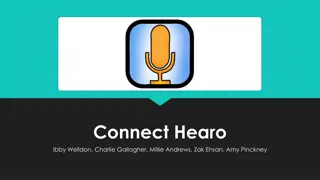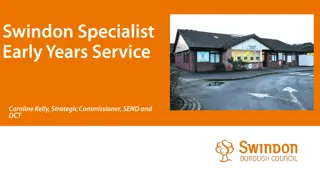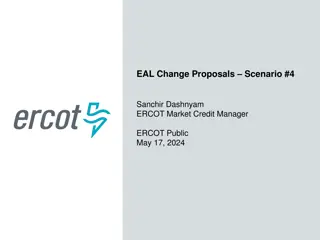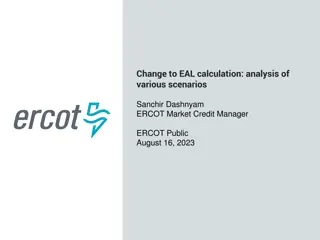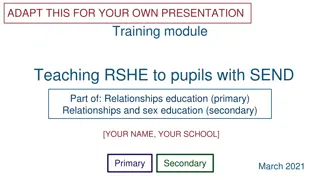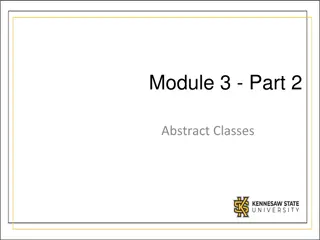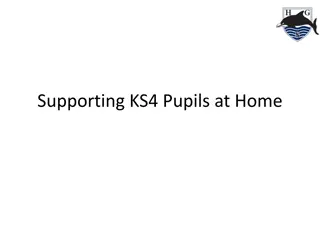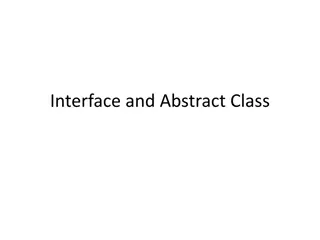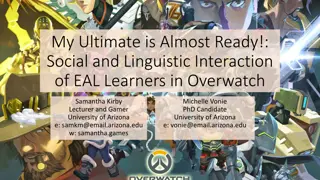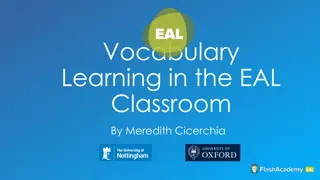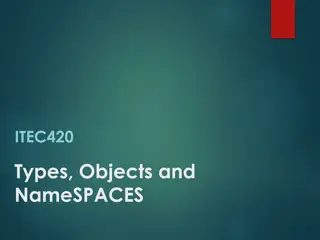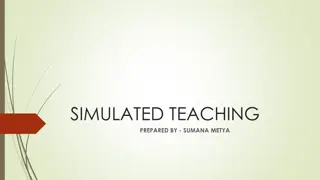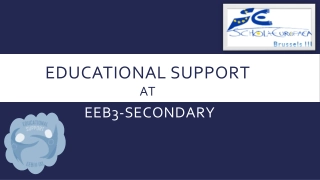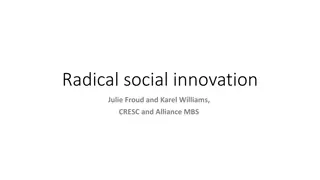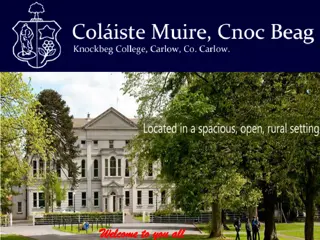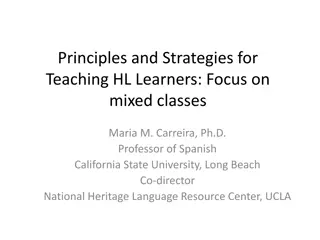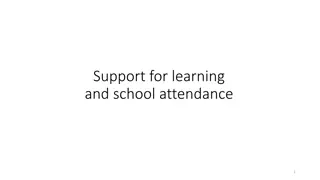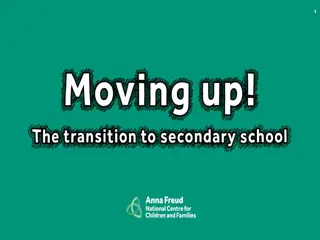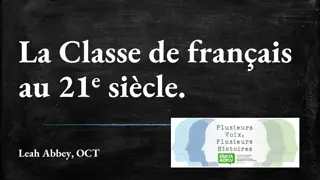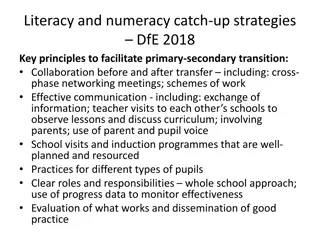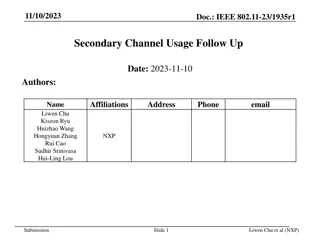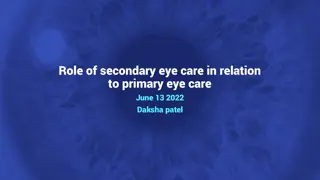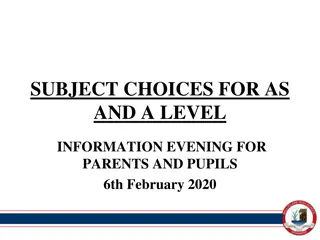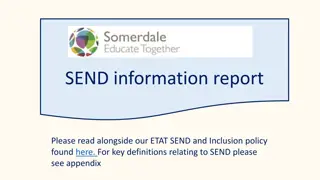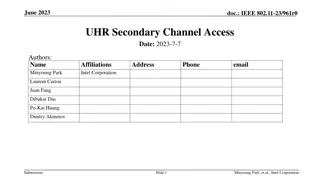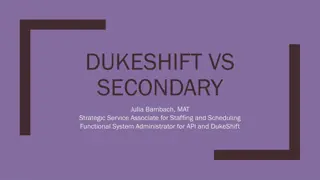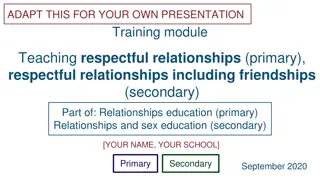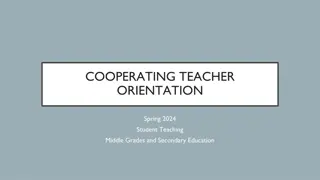Challenges and Support for Teaching EAL Pupils in Mainstream Secondary Classes
Teaching English as an Additional Language (EAL) pupils in mainstream secondary classes poses significant challenges for educators. Issues such as teacher preparedness, classroom support, and training are highlighted, emphasizing the importance of meeting the diverse learning needs of all students. The responsibility for supporting EAL pupils is recognized as a collective effort, urging for better inclusion and support strategies in schools.
Download Presentation

Please find below an Image/Link to download the presentation.
The content on the website is provided AS IS for your information and personal use only. It may not be sold, licensed, or shared on other websites without obtaining consent from the author. Download presentation by click this link. If you encounter any issues during the download, it is possible that the publisher has removed the file from their server.
E N D
Presentation Transcript
Teaching EAL pupils in mainstream secondary classes
Getting it right Lucy, PT: it's very difficult, if you have lots of competing requirements in a classroom, to then have a young person who has very little English language skills, that makes it a huge challenge . Gail, PT: Getting it right for every child that does mean that one pupil, and they (EAL pupils) all seem to go to the bottom .
Inclusion about meeting the needs of all children dependent on teachers beliefs, attitudes and actions
It is no longer only the responsibility of specialist staff to support the wide range of learning needs of children and young people. This support is now regarded as being everyone s job .(HMIE 2007, 4).
All of the participants were supportive of the work of the EAL Pupil Support Service. Three issues in mainstream: Preparedness Classroom support Training
Preparedness Marc (NQT) : a lot of the teachers find it quite daunting and are incredibly unprepared to deal with a pupil who is using English as a second language .
Preparedness (Amy, PT): so she speaks Portuguese and she speaks no English whatsoever, she doesn't have any skills, and that s very, very difficult, because I ve got no idea what she s understanding, I can t teach her anything, because I can't explain anything to her.
Preparedness Ben (NQT): particularly the lack of preparedness of a lot of teachers to deal with pupils like that, it might be best for them to be extracted from the mainstream and given a more focused form of provision .
Classroom support Sarah, NQT: and if you have a bilingual student whose English is very poor if they don t have a translator it can be almost impossible to include them. Lucy, PT: I have never ever had any support in my classroom for anyone with an additional language, I've never been offered a translator, and it is impossible, it is absolutely impossible.
Pupils can find themselves in but not of the class in terms of social and learning membership (Ferguson 2008, 111). Children are genuinely perplexed that it is so difficult to do inclusion (Allan 2010, 200) Across Europe researchers report that teachers are increasingly talking about inclusion as an impossibility in the current climate (Allan, 2010).
CfE, which is meant to support all learners, can be applied in a way that allows LAs, mainstream schools and departments to abdicate responsibility for bilingual learners. The assumption is that bilingual teachers, or teaching assistants, will fill the void (Foley, 2012, P203).
Classroom support Lucy (PT): it s really difficult to give the level of support that they need to be in mainstream all the time. I don t think it works very well at all .
Classroom support Gail (PT): if you accept as given the policy is immersion with language extraction, then we are in essence teachers of English as a foreign language. So, at the moment we are essentially being asked to do that equipped with nothing other than a couple of Polish dictionaries, and that puts an unreasonable expectation on a classroom teacher .
Curriculum potential Steve, PT: the way that the Scottish government have tailored the curriculum, you can do anything, as long as you're doing it in a way that you are teaching and the pupils are learning, it's really hard not to find something that does not develop all the needs of the pupils in some way
Effective Training Greg, PT: I'm not entirely sure the policy looks into in enough detail what actually we should be doing, how to actually teach these pupils and what effective training we can have . Lucy, PT: so yes I think if we are to be expected to make our classrooms more equitable and more accessible then we need to be trained appropriately .
IPP University of Aberdeen School of Education Inclusive Practice Project (IPP) in initial teacher education Specialist interventions are called upon in the project to assist the teacher to teach effectively instead of the teacher relinquishing his/her responsibility for hard to teach children (Florian and Rouse 2009, 598).
Wider issues Budgets Accountability Multicultural focus Cultural and linguistic knowledge
1. Budget reduction Numbers of ASN teachers have been cut by a sixth (need ref) in the last eight years. Provision for those who give the best returns for the least investment?
Time and Support lack of time : attainment and curricular development commitments which took priority lack of support : budget and training priorities being focused on other issues:
Greg, PT: if you're a maths teacher, you're saying well I need to get my kids through national 5 maths, I don't have time to spend time promoting diversity . Sarah, NQT: it s fine having a broad general education, it s like all the inclusion and including these people, but if the provisions aren t there how can you support them?
2. Accountability The two new priorities of the Scottish curriculum: raising attainment, and closing the gap in attainment for those in the low socio-economic bracket (Delivering Excellence and Equity 2016, 4). Quality and Equality The Finnish comprehensive school is often referred to as it ---seems to achieve both high quality (being consistently at or near the top of the OECD league tables ) and equality at the same time (Halinen and J rvinen 2008, 78).
Andreas Schleicher, director of education for the OECD: Scotland is ---a surprise to me, I would have hoped and expected that some of the efforts they have made would have come out. But in the data there is no evidence, rather the opposite.
Inclusive values Cultural as well as linguistic barriers to inclusion
3. Multicultural focus Secondary teachers are tasked with providing a holistically inclusive environment that meets the learning, social and cultural needs of immigrant pupils (GTC, 2012) It is essential that attainment does not come at the cost of flourishing together, which is widely considered the purpose of school.
Deficit and Elite Cosmopolitanism Migration Mobility deficit cosmopolitanism elite cosmopolitanism fringes of society upper socio-economic levels private spaces dialogue (Guilherme (2007)
Greg, PT: you could just tell that these children had a really hard time, and you want to help them, you want to reach out to them but there's no way to do it. They just sit in the class .quite often they are not included, I think quite passive observers .
Steve, PT: I think a lot of bilingual pupils are in such an unfortunate position because there is so few of them. The reason these issues aren t getting raised is because, it sounds very clich d, but they don t have a voice really .
Multiculturalism Multiculturalism does not carry the same capital for migrants as for native pupils.
In recognising difference it is important to remember that while customs and mores may differ from one country to the next, the requirements of morality are the same always and everywhere . (Brown, 1998, p108)
Nation states Even supporters of the idea of a society of nation states acknowledge that in practice most countries do not uphold values that deserve to be upheld . Quite a number of states are little more than complicated protection rackets sometimes actually quite simple protection rackets rather than anything so grand as an expression of a conception of the Good . (Brown, 1998)
Gail, PT: they love their parents, and it's not just the parents, it s extended family like their granny in Poland and things like that. But equally they want to fit into Scottish society, they want to fit into our culture. I ve caught kids hiding . putting their lunch in the bin because their packed lunch consists of Polish food. And I have children who have actually said to me: I'm ashamed to be Polish .
Hybrid Identity Lucy, PT: those children wouldn't feel that level of conflict. They would probably feel that they would be able to have both, and not feel guilty .
Racist concerns Gail, PT: What concerns me significantly is that just before the summer holidays I probably filled out 3 race related incident forms. But it s media driven. It s making people feel, I guess braver, that they can!
4. Cultural and Linguistic knowledge John, NQT: We re all fairly ignorant, being brought up in the UK with our culture. It does develop a natural ignorance of other cultures . Greg, PT: as a teacher, I feel quite embarrassed sometimes, that I don t quite know how to deal with a pupil who doesn t have any English.
Migrant learners who want to succeed in the formal education system can do so only at great cost, by sacrificing their linguistic and cultural heritage. (UNESCO, 2007a, p 32)
Steve, PT: There was a boy here last year and I'm pretty sure he was Syrian, although I never really found out. I never actually managed to have a conversation with him, he just used to smile at me when I asked him how he was getting on and used to nod and he's just not here now, I don't know where he's gone .
Technology Lucy, PT: I think actually technology will be key in speeding up the progress that EAL kids make in class, in essence everything's an app so what do you really need your English for .
Forums for debate It would allow teachers to voice their concerns, and be a voice for their pupils It would greatly enlarge the pool of ideas and experience which could inform future practice It would democratise teachers status allowing them to influence decision-making.
Susie, NQT: it s not really a debate, it s not really about what do you as teachers think about this, how do you feel about inclusion. It s more just like this is how we re going to do this now. This is how things will be done . Kate, PT: I would say there s not enough time that we get to spend talking to other staff about anything really I think that that s one of the things that s missing in education at the moment is a chance to talk to other teachers about strategies that work. .
Becoming more inclusive should be a matter of thinking and talking, reviewing and refining practice. (Ainscow and Sandill 2010, 407)
Inclusion Greg, PT: I think schools are very positive about inclusion, and I think the curriculum is very positive about inclusion. I just don't think it's actually happening in practice .
Three strategies good classroom practice developing communication between peers providing opportunities for teachers
Constraints Attainment requirements that in practice deny a place for curricular practices that do not directly add to attainment value. Tight budgets which have reduced support (Scottish Government, 2016c). An already overcrowded curriculum which allows little time for discussing and developing successful strategies.
Enhancing learning is more than improving learning outcomes in different subjects. Growing up in a pluralistic world Acquiring the capability and right attitude to live together It is the translation of the natural dispositions of the young mind (Unesco, 2007b)
Three strategies classroom practice that includes active/cooperative learning techniques developing communication between peers a) giving native pupils strategies to interact with their EAL peers b) encouraging EAL pupils to value their home culture and language, and value the formation of a hybrid identity providing opportunities for teachers to educate pupils about different cultures by exploring commonalities
